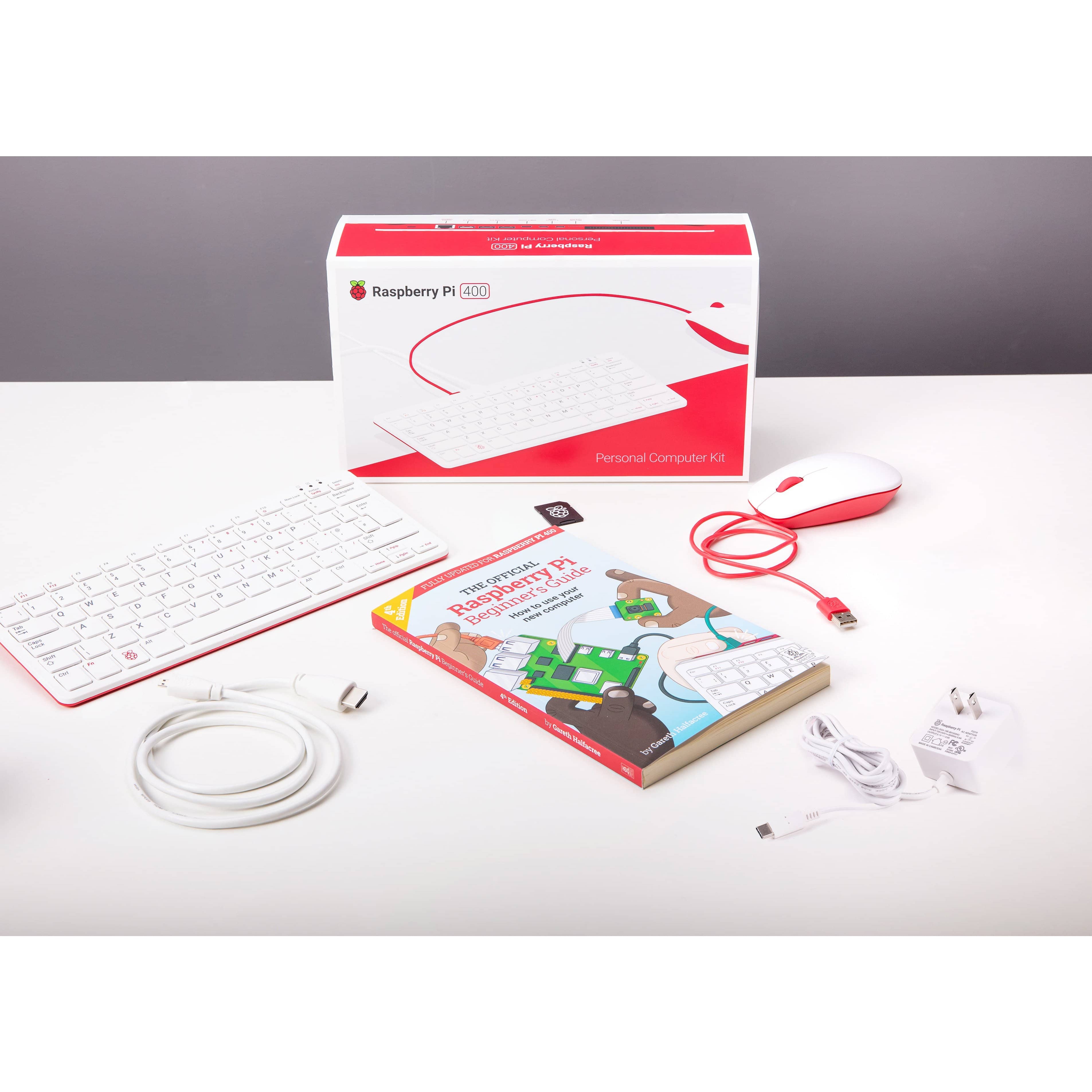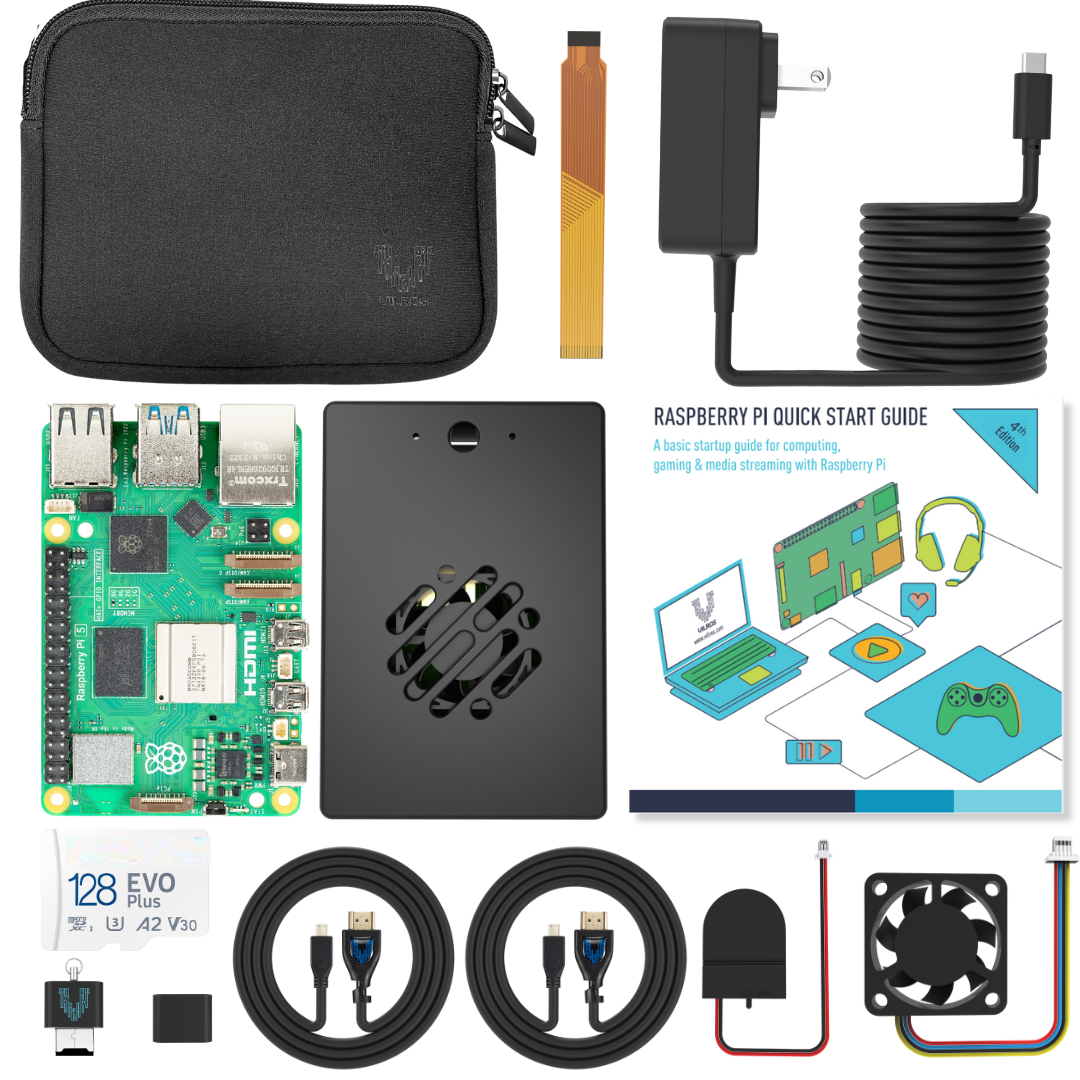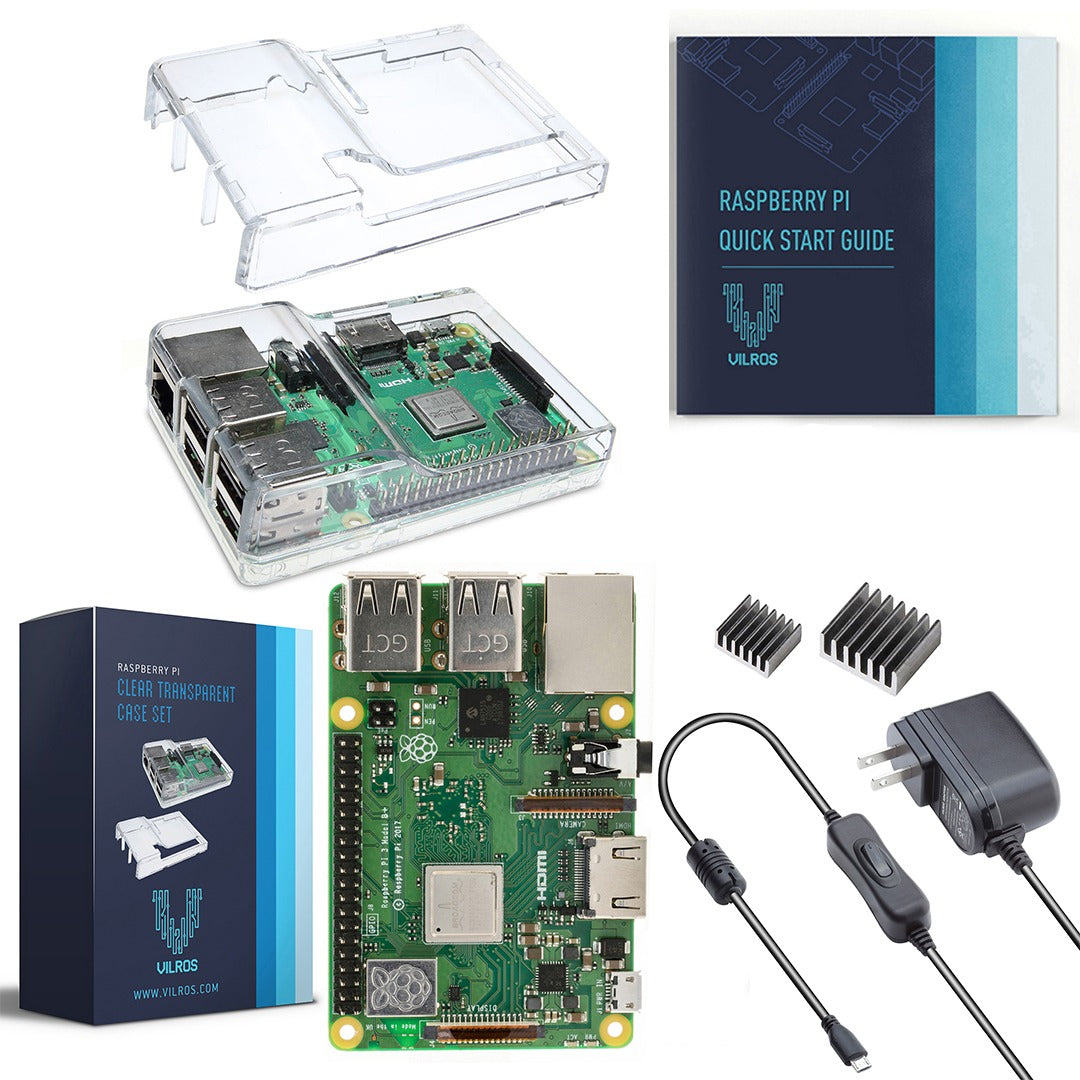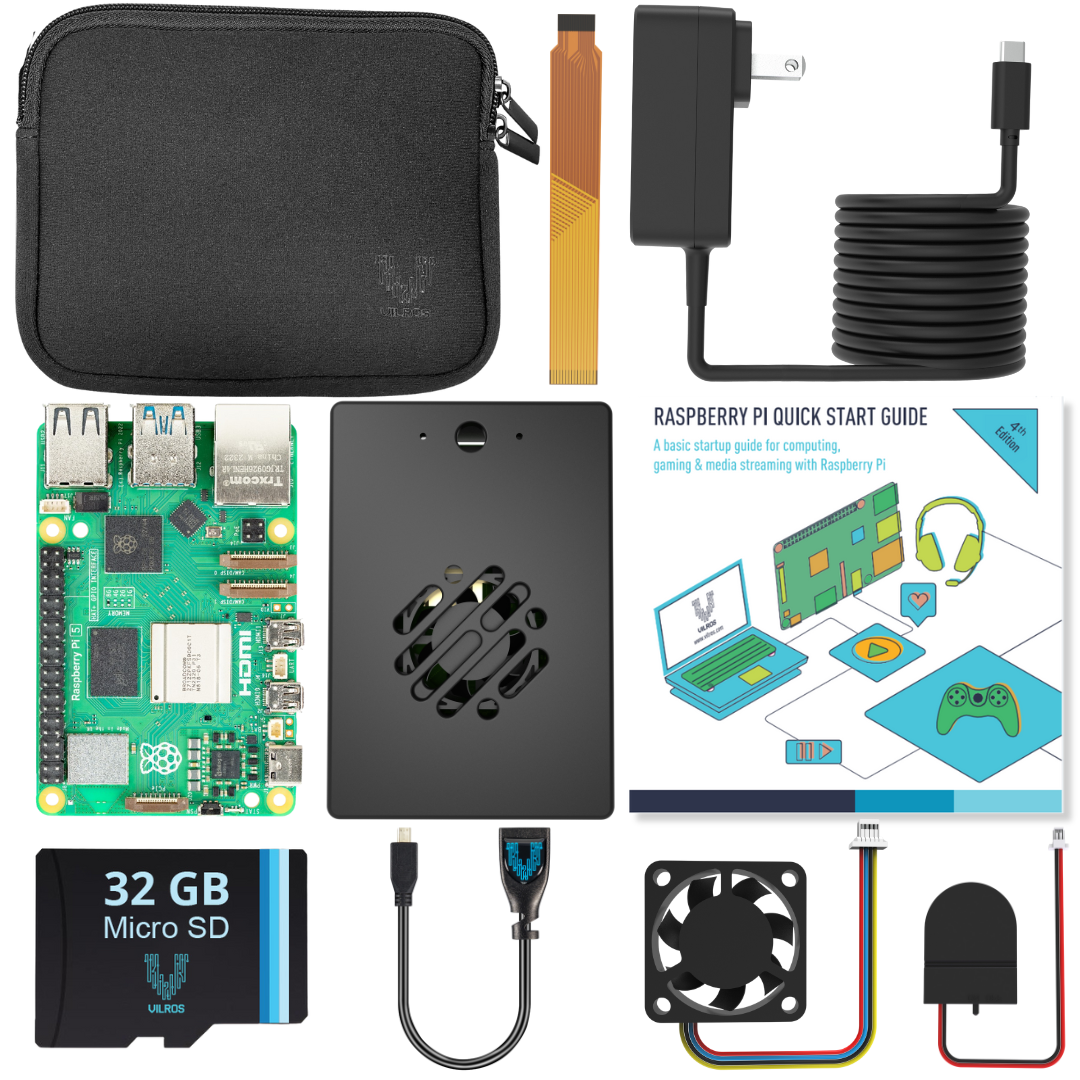2391193026660,
6624690896990,
3561800990820,
6819486400606,
3597181091940,
3933480681566,
3564127912036,
6819488333918,
4810905288798,
3929155338334,
2391193092196,
3564119490660,
3932530671710,
2391195713636,
3239546585188,
3925004157022,
2391186931812,
3932560359518,
6819487383646,
4792200200286,
3238978289764,
2391193944164,
4092937404510,
4381554540638,
2391196237924,
2391192895588,
4168227881054,
2391190732900,
2391190536292,
6568956330078,
3564140298340,
6556144926814,
2391189946468,
2391191093348,
4817664082014,
4635900870750,
6819488694366,
3954769690718,
6573637468254,
3238831784036,
6891295539294,
6845870964830,
3239871053924,
2391192109156,
6624702038110,
4816138010718,
6589353164894,
4430370930782,
4442337640542,
4753723359326,
6692063117406,
6692063150174,
6692062953566,
6692063019102,
6692062920798,
6692063248478,
6692062986334,
6692063084638,
6692063051870,
6554327056478,
6554610729054,
6554611187806,
6605909753950,
6605732315230,
6554318143582,
6554302316638,
6605925482590,
6605735985246,
6554312736862,
6747569061982,
6605915095134,
6554330366046,
6747570995294,
6554624032862,
6554316210270,
6554304086110,
6773960999006,
6554323615838,
6554322010206,
4163776151646,
3597181091940,
3933480681566,
3929155338334,
3924192526430,
6841277087838,
6636577390686,
3932530671710,
2391195058276,
2391195713636,
3925004157022,
6625045545054,
2391186931812,
3932560359518,
4792200200286,
2391184867428,
2391193944164,
6826880303198,
4092937404510,
4381554540638,
2391196237924,
3924746764382,
4168227881054,
2391190732900,
2391190536292,
4456976711774,
2391189946468,
2391190437988,
2391191093348,
2391184932964,
4817664082014,
4635900870750,
3954769690718,
6573637468254,
2391197188196,
6891295539294,
6845870964830,
6626128953438,
4816138010718,
6589353164894,
4430370930782,
6748697722974,
6577628250206,
4442337640542,
4753723359326,
6684608757854,
2391185948772,
6626132197470,
6826883678302,
6826883088478,
6818902245470,
4163776151646,
2391193026660,
4746347020382,
6624690896990,
3561800990820,
6819486400606,
3597181091940,
3933480681566,
3564127912036,
6819488333918,
4810905288798,
3929155338334,
3924192526430,
2391193649252,
6841277087838,
2391193092196,
3564119490660,
6636577390686,
3932530671710,
2391195058276,
7071969050718,
3588491673700,
2391195713636,
3239546585188,
3925004157022,
6625045545054,
2391186931812,
3932560359518,
4442333479006,
6819487383646,
4746339123294,
4792200200286,
6745686409310,
3238978289764,
2391184867428,
2391193944164,
6826880303198,
4092937404510,
4381554540638,
2391196237924,
2391192895588,
3924746764382,
4168227881054,
2391190732900,
2391190536292,
6568956330078,
3564140298340,
4456976711774,
6556144926814,
4163776151646,
4746347020382,
3924192526430,
6841277087838,
6636577390686,
2391195058276,
3588491673700,
6625045545054,
4792200200286,
2391184867428,
6826880303198,
3924746764382,
4456976711774,
2391190437988,
2391184932964,
4817664082014,
6626128953438,
6748697722974,
6577628250206,
6684608757854,
6626132197470,
2391193583716,
3060911341668,
6651881848926,
6592337576030,
6689787904094,
6556130738270,
6780557459550,
4441919783006,
4817025237086,
2391194632292,
6670101971038,
4792269799518,
2391185457252,
4792316035166,
6692572921950,
6861623361630,
2391194959972,
2391193747556,
2391193878628,
4825799229534,
4514752430174,
4792348934238,
2391183786084,
2391183884388,
6560947830878,
4799040585822,
3219830669412,
2391195287652,
4792302174302,
6818902245470,
4163776151646,
2391193026660,
4746347020382,
6624690896990,
3561800990820,
6819486400606,
3597181091940,
3933480681566,
3564127912036,
6819488333918,
4810905288798,
3929155338334,
2391193649252,
6841277087838,
2391193092196,
3564119490660,
6636577390686,
2391195058276,
7071969050718,
2391195713636,
3239546585188,
3925004157022,
6625045545054,
2391186931812,
3932560359518,
4442333479006,
6819487383646,
4746339123294,
4792200200286,
6745686409310,
3238978289764,
2391184867428,
2391193944164,
6826880303198,
4092937404510,
4381554540638,
2391196237924,
2391192895588,
3924746764382,
4168227881054,
2391190732900,
2391190536292,
6568956330078,
3564140298340,
4456976711774,
6556144926814,
2391190437988,
2391191093348,
4817664082014,
6570747363422,
4734912528478,
6570751819870,
6570738843742,
6570749493342,
6570748674142,
6570750345310,
6744267292766,
6744267456606,
6697181675614,
6744267522142,
2391184474212,
4365103661150,
2391184310372,
2391187914852,
2391185195108,
2391185293412,
2391186767972,
2391185588324,
2391186473060,
6554257981534,
2391186636900,
2391186341988,
4527989882974,
2391188537444,
2391186014308,
2391187030116,
6801662083166,
2391188439140,
2391187619940,
4828709584990,
4823863754846,
2391188176996,
6554261651550,
4396853788766,
2391187521636,
6736972972126,
2391187816548,
4823854088286,
2391188078692,
4760794497118,
2391196663908,
6801661165662,
6714712653918,
6736950886494,
6717593780318,
2391185588324,
6801662083166,
4525835583582,
6625054294110,
4823870013534,
4823879680094,
4525816905822,
4591882371166,
4823854088286,
4823887151198,
6801661165662,
2391184867428,
2391184932964,
2391185457252,
4823863754846,
2391184867428,
2391184932964,
2391184474212,
4365103661150,
2391184310372,
2391187914852,
2391185195108,
2391185457252,
2391185293412,
2391186767972,
2391185588324,
2391186473060,
2391186636900,
2391186341988,
4527989882974,
2391188537444,
2391186014308,
2391187030116,
6801662083166,
4525835583582,
2391188439140,
2391187619940,
4823863754846,
6625054294110,
2391188176996,
4823870013534,
6554261651550,
6551143252062,
4823879680094,
4525816905822,
4396853788766,
2391187521636,
2391188013156,
6736972972126,
4591882371166,
2391187816548,
4823854088286,
2391188078692,
4823887151198,
4760794497118,
6647265820766,
2391196663908,
6801661165662,
6714712653918,
6736950886494,
6717593780318,
2391184867428,
2391185457252,
4424026947678,
2391196434532,
4428749570142,
2391187718244,
2391185588324,
4514752430174,
2391187357796,
2391183884388,
4527989882974,
6801662083166,
3123431637092,
4720582033502,
4525835583582,
4525816905822,
4591882371166,
6648499011678,
6871927652446,
6801661165662,
4456148336734,
7256915673182,
6839631904862,
7016882503774,
7020449202270,
6608721543262,
6608727605342,
6608711385182,
6608928047198,
6733616578654,
6608723181662,
7020469387358,
7020441174110,
6608728916062,
6608718626910,
6672205217886,
6608924541022,
6738408472670,
7020479774814,
3498551541860,
6731042914398,
2391195058276,
3588491673700,
2391184867428,
4720582033502,
6608040099934,
4825325469790,
6540581535838,
4514752430174,
4455989411934,
4456219312222,
3588491673700,
6544399794270,
4425961537630,
4429507100766,
6572702564446,
4333561741406,
4698719223902,
4442335936606,
4807874773086,
6608723181662,
4799040585822,
4792348934238,
6582787473502,
4807922253918,
6871933714526,
6538838966366,
4455983186014,
4808814592094,
4800165707870,
4792316035166,
6871933550686,
2391196991588,
4792302174302,
6608721543262,
4442337640542,
4792200200286,
6539718852702,
6871932698718,
4097614217310,
3513152602212,
4807049052254,
4635863253086,
6623376506974,
4635900870750,
3239546585188,
4429494845534,
4092937404510,
4792269799518,
6608727605342,
4448448053342,
4813333495902,
6871929421918,
6539647811678,
4168227881054,
4163776151646,
6636577390686,
2391195713636,
2391184867428,
2391184932964,
6573637468254,
4753723359326,
4365103661150,
6716243378270,
6694009241694,
4787680903262,
6539647811678,
4827510046814,
6606807105630,
4808814592094,
4799102681182,
4807874773086,
6551143252062,
6603425316958,
6709654323294,
6556461891678,
6605978042462,
6606229340254,
6750902681694,
6556460974174,
6556459401310,
6752256426078,
6871932305502,
6752257507422,
6841277087838,
2391195713636,
6826880303198,
4753723359326,
2391194402916,
4448448053342,
6694009241694,
4441919783006,
6839618306142,
4787680903262,
2391196434532,
4424026947678,
4428749570142,
6876194144350,
7164344172638,
6606807105630,
6780558639198,
7216078946398,
6538838966366,
3924192526430,
3924746764382,
3564119490660,
3597181091940,
3561800990820,
3925004157022,
2391184310372,
2391185195108,
2391185424484,
2391185948772,
2391186014308,
2391186341988,
2391186473060,
2391186636900,
2391186767972,
2391187030116,
2391187521636,
2391187914852,
2391188013156,
2391188176996,
2391188439140,
2391188537444,
2391189946468,
2391190732900,
2391191879780,
2391192109156,
2391192207460,
2391192895588,
2391194402916,
2391195713636,
2391196237924,
2391196434532,
2391196991588,
2391197188196,
3238978289764,
3239546585188,
3496703197284,
3496808120420,
3564127912036,
3564140298340,
3588491673700,
3929155338334,
3932530671710,
3932560359518,
3933480681566,
3954769690718,
4092937404510,
4097614217310,
4162393407582,
4163778183262,
4448448053342,
4097614217310,
6871932698718,
4787680903262,
4430370930782,
4787711901790,
4807049052254,
4333561741406,
2391185457252,
4827691221086,
4828034302046,
4792348934238,
6592337576030,
6644678295646,
4455983186014,
6694009241694,
6694352683102,
6608607641694,
4163778183262,
4168223883358,
4817664082014,
6556130738270,
6689787904094,
6692572921950,
6560942162014,
6560947830878,
6560949633118,
6716243378270,
3179216437348,
4410420756574,
6573637468254,
3597181091940,
3564127912036,
3925004157022,
6823958544478,
2391194206308,
6823962280030,
6628550377566,
2391187718244,
4816568057950,
6648112808030,
4731888140382,
6628509548638,
6669251182686,
6540581535838,
2391188570212,
4550127026270,
6701810843742,
6641609310302,
6902457335902,
6780558409822,
6573536772190,
4760794497118,
6815048007774,
6592401080414,
6694009241694,
2391195713636,
4807049052254,
6606807105630,
4753723359326,
6539647811678,
4807874773086,
4808814592094,
4787680903262,
6605984890974,
3498536206436,
7210670162014,
4745192374366,
4745214034014,
4745146466398,
3403308630116,
4745217540190,
2391189553252,
6696414249054,
6608040099934,
6540581535838,
6694009241694,
6841277087838,
4456219312222,
6826880303198,
4425961537630,
6608031252574,
4333561741406,
7189978775646,
2391194959972,
4807874773086,
6861623361630,
7210670162014,
4799040585822,
6592337576030,
4792348934238,
6556130738270,
2391197188196,
3498536206436,
4792316035166,
4808814592094,
6806478192734,
4792302174302,
3060911341668,
4792200200286,
6716243378270,
6605984890974,
4591882371166,
4807049052254,
6573637468254,
6623376506974,
4792269799518,
4448448053342,
2391193026660,
6622900682846,
6780558639198,
6539647811678,
2391195713636,
4410420756574,
4163778183262,
4799102681182,
3931026522206,
3179216437348,
3954769690718,
3934715674718,
6606807105630,
6756066361438,
3933480681566,
4753723359326,
3060911341668,
4456219312222,
4424026947678,
4428749570142,
4455983186014,
4787711901790,
4808814592094,
4799102681182,
6551143252062,
4529836261470,
3943111098462,
6645300822110,
6738372755550,
6608718626910,
6894995472478,
6608928047198,
4162393407582,
4813321240670,
2391195713636,
2391196237924,
2391197188196,
2391194402916,
2391196434532,
6606807105630,
6871932043358,
6871929421918,
6538838966366,
6570061234270,
6871931715678,
6692063117406,
6692063150174,
6692062953566,
6692063019102,
6871927652446,
6692062920798,
6692062986334,
6692063084638,
6871932305502,
6554323615838,
6871930437726,
2391195713636,
2391196237924,
2391189946468,
2391197188196,
4430370930782,
2391194402916,
2391196434532,
6572702564446,
6606807105630,
6871932043358,
6871929421918,
6538838966366,
6570061234270,
6871931715678,
6871927652446,
6871932305502,
6871930437726,
6632738095198,
3597181091940,
2391195713636,
2391196237924,
4456976711774,
2391197188196,
4430370930782,
2391193583716,
3060911341668,
2391194402916,
6592337576030,
4441919783006,
4163778183262,
4168223883358,
2391196434532,
2391193878628,
6572702564446,
4455983186014,
3179216437348,
6582787473502,
6606807105630,
6871932043358,
6736663773278,
2391189553252,
2391191388260,
6871929421918,
6538838966366,
6570061234270,
6665469231198,
4525927137374,
6544399794270,
4396870238302,
6701816053854,
6626424062046,
6871931715678,
6692063117406,
6583229612126,
6692063150174,
6692062953566,
6692063019102,
6570074472542,
6871927652446,
6692062920798,
6605978042462,
6692063248478,
6692063084638,
6871932305502,
6554323615838,
6871930437726,
6632738095198,
6692063051870,
4828688121950,
2391187357796,
6577684775006,
4720582033502,
4823863754846,
6568580612190,
7256915673182,
6769716363358,
2391186931812,
6845870964830,
3060911341668,
4781270368350,
2391193747556,
2391193878628,
4514752430174,
2391183786084,
3178609770596,
2391195975780,
4456148336734,
4163776151646,
3597181091940,
3933480681566,
3929155338334,
3924192526430,
6841277087838,
6636577390686,
3932530671710,
2391195058276,
2391195713636,
3925004157022,
6625045545054,
2391186931812,
3932560359518,
4792200200286,
2391184867428,
2391193944164,
6826880303198,
4092937404510,
4381554540638,
2391196237924,
3924746764382,
4168227881054,
2391190732900,
2391190536292,
4456976711774,
2391189946468,
2391190437988,
2391191093348,
2391184932964,
4817664082014,
4635900870750,
3954769690718,
6573637468254,
2391197188196,
6891295539294,
6845870964830,
6626128953438,
4816138010718,
6589353164894,
4430370930782,
6748697722974,
6577628250206,
4442337640542,
4753723359326,
6684608757854,
2391185948772,
6626132197470,
6826883678302,
6826883088478,
2391184867428,
2391187914852,
2391185195108,
2391186341988,
2391183786084,
2391187816548,
4818201804894,
4448448053342,
6623376506974,
4635900870750,
2391186636900,
2391188439140,
6554261651550,
2391196991588,
6871933550686,
2391184310372,
6539647811678,
4097614217310,
6871932698718,
4800165707870,
6871933714526,
6784828244062,
6540581535838,
2391186767972,
2391186341988,
6541268516958,
4808897101918,
4530135433310,
2391188078692,
6626627944542,
3496703197284,
4530133631070,
2391188537444,
4818326159454,
4816987619422,
2391188013156,
6573536772190,
4582406815838,
6597583077470,
2391184474212,
4529828331614,
4741615648862,
6714712653918,
4816983490654,
6692063051870,
6692062953566,
6692062986334,
6692063117406,
6692063150174,
6692062920798,
6692063019102,
6692063248478,
6692063084638,
4525927137374,
6583229612126,
6662625624158,
4365103661150,
4827510046814,
4818201804894,
4816983490654,
6551132766302,
4817051025502,
6541275299934,
6541268516958,
4818329043038,
4818290966622,
4808897101918,
6539945574494,
3443682574436,
3498551541860,
3505971232868,
4720582033502,
4823282810974,
4823285694558,
4827691221086,
4828034302046,
4823282810974,
3443682574436,
4823285694558,
3505971232868,
6554261651550,
4818329043038,
6606004650078,
6563500261470,
6737208311902,
4818326159454,
6736861626462,
6606229340254,
6606012973150,
6736677175390,
6736675307614,
6736674259038,
6736671801438,
6736670752862,
6606008680542,
6605984890974,
4533844836446,
6736673243230,
6606227144798,
6606010810462,
6736957472862,
6606230585438,
6606015561822,
6577940856926,
6577684775006,
6577628250206,
4817025237086,
2391195058276,
2391193026660,
2391190437988,
7020479774814,
7020469387358,
7020449202270,
7020441174110,
7016882503774,
6994614386782,
6985284583518,
6922916724830,
6917543264350,
6917482512478,
6906368786526,
6902459170910,
6902457335902,
6902455468126,
6894995472478,
6894365802590,
6894177517662,
6887802044510,
6839067967582,
6825727950942,
7306554376286,
7304845328478,
7300008935518,
7299990978654,
7297700462686,
7296615710814,
7280148840542,
7277732659294,
7275613454430,
7275581636702,
7267248275550,
7267244834910,
7267243884638,
7267238248542,
7267045867614,
7256915673182,
7256904663134,
7240116437086,
7236436721758,
7222887514206,
7222811131998,
7222806610014,
7222805758046,
7222804381790,
7222799958110,
7216078946398,
7210670162014,
7202839068766,
7202816917598,
7202815934558,
7202789359710,
7202788802654,
7202787426398,
7197927637086,
7193602097246,
7189978775646,
7180865044574,
7164344172638,
7162133676126,
7161673515102,
7161671712862,
7161670402142,
7161641304158,
7144739340382,
7144733343838,
7144732229726,
7144727380062,
7140151001182,
7127078895710,
7126637215838,
2391193649252,
2391188766820,
3238831784036,
2391191715940,
2391191748708,
2391193026660,
2391193092196,
2391192764516,
2391190241380,
3239834845284,
2391192895588,
2391192109156,
2391191879780,
3239546585188,
3238978289764,
3239871053924,
2391192207460,
3403308630116,
3533534199908,
3561800990820,
3564119490660,
3564127912036,
3564140298340,
3588491673700,
4442333479006,
4442335936606,
4442337640542,
4442348060766,
4720582033502,
4741615648862,
4163776151646,
3597181091940,
3933480681566,
3929155338334,
3924192526430,
6841277087838,
6636577390686,
3932530671710,
2391195058276,
2391195713636,
3925004157022,
6625045545054,
2391186931812,
3932560359518,
4792200200286,
2391184867428,
2391193944164,
6826880303198,
4092937404510,
4381554540638,
2391196237924,
3924746764382,
4168227881054,
2391190732900,
2391190536292,
4456976711774,
2391189946468,
2391190437988,
2391191093348,
2391184932964,
4817664082014,
4635900870750,
3954769690718,
6573637468254,
2391197188196,
6891295539294,
6845870964830,
6626128953438,
4816138010718,
6589353164894,
4430370930782,
6748697722974,
6577628250206,
4442337640542,
4753723359326,
6684608757854,
2391185948772,
6626132197470,
6826883678302,
6826883088478,
6818902245470,
6841277087838,
6826880303198,
6841277087838,
6826880303198,
6823915094110,
6737327456350,
6608040099934,
4807874773086,
4746347020382,
4456219312222,
3933480681566,
3932560359518,
3929155338334,
2391197188196,
2391194959972,
2391193747556,
2391193878628,
2391190437988,
2391184867428,
6568956330078,
3239871053924,
6826902061150,
2391192207460,
4813554679902,
6622421352542,
3941601607774,
6667083251806,
6622900682846,
6608928047198,
4813321240670,
6736663773278,
6554610729054,
7222804381790,
4396804145246,
6665469231198,
4665873989726,
4396870238302,
6671074492510,
3496641790052,
6568580612190,
3496703197284,
6605735985246,
6992604528734,
4825217237086,
6554316210270,
6554304086110,
6568596144222,
4698719223902,
7306554376286,
7197927637086,
6826901471326,
6736976543838,
6696419590238,
6624690896990,
6625045545054,
6626128953438,
6626132197470,
6733616578654,
7277732659294,
6688232767582,
6689787904094,
6692572921950,
7222811131998,
7222805758046,
4381554540638,
4162393407582,
4396055101534,
4396826853470,
4381460267102,
4381541367902,
4396036194398,
6671044870238,
6539716427870,
6894177517662,
4396861096030,
4396879151198,
4396063490142,
6736663773278,
6568592736350,
4396018860126,
6539697094750,
6701810843742,
6671041888350,
6701806780510,
6539720851550,
4396804145246,
6539718852702,
6671014920286,
6665469231198,
4396853788766,
6539695784030,
4665873989726,
6544399794270,
4396870238302,
6757302927454,
6701816053854,
6671074492510,
6539709644894,
6736972972126,
6736565469278,
6626424062046,
6671023439966,
6568580612190,
4396010176606,
6799589081182,
6757299159134,
6539714297950,
4396844482654,
6799586328670,
6799534686302,
6736566812766,
6568591032414,
6568586084446,
6799592128606,
6651881848926,
6841277087838,
6826880303198,
6636577390686,
4817025237086,
6818902245470,
6626132197470,
6917482512478,
6839618306142,
6819487383646,
6894365802590,
6825727950942,
6825729949790,
6819488333918,
3561800990820,
6819486400606,
3933480681566,
2391193944164,
4092937404510,
4635900870750,
6891295539294,
6624702038110,
4741615648862,
2391194632292,
6861623361630,
6623376506974,
4817016225886,
2391183884388,
7162133676126,
3513152602212,
6622900682846,
6808831295582,
6679659544670,
6679660494942,
4529828331614,
7202789359710,
6773938683998,
6606008680542,
4827460141150,
6868473970782,
7202788802654,
7202787426398,
6839067967582,
6722848587870,
6610824691806,
6818902245470,
4163776151646,
4746347020382,
3924192526430,
6841277087838,
6636577390686,
7071969050718,
3588491673700,
6826880303198,
4456976711774,
6577628250206,
6684608757854,
6651881848926,
6608040099934,
4456219312222,
6694009241694,
4441919783006,
7240116437086,
4825325469790,
6823915094110,
7222799958110,
2391193747556,
6776951930974,
4514752430174,
7164344172638,
2836201734244,
4455989411934,
6540581535838,
2391189553252,
7222804381790,
7216078946398,
6737327456350,
6784956203102,
2391195975780,
6672205217886,
6750757191774,
7296615710814,
6769716363358,
3498551541860,
6692844830814,
6649846071390,
6556459401310,
4456148336734,
6903963975774,
6657711112286,
6731059134558,
6731042914398,
3403308630116,
7267238248542,
7267045867614,
6554622820446,
4825217237086,
4163776151646,
2391193026660,
4746347020382,
6624690896990,
3561800990820,
3597181091940,
3933480681566,
3564127912036,
6819488333918,
4810905288798,
3929155338334,
3924192526430,
2391193649252,
6841277087838,
2391193092196,
3564119490660,
6636577390686,
3932530671710,
2391195058276,
7071969050718,
3588491673700,
2391195713636,
3239546585188,
3925004157022,
6625045545054,
2391186931812,
3932560359518,
4442333479006,
6819487383646,
4746339123294,
4792200200286,
3238978289764,
2391193944164,
6826880303198,
4092937404510,
4381554540638,
2391196237924,
2391192895588,
3924746764382,
4168227881054,
2391190732900,
2391190536292,
6568956330078,
3564140298340,
4456976711774,
6556144926814,
2391189946468,
2391190437988,
2391191093348,
2391188766820,
2391193649252,
2391188766820,
3238831784036,
6748697722974,
2391185948772,
2391193583716,
4333561741406,
2391192764516,
3122673844324,
2391194632292,
6670101971038,
2391194959972,
2391193747556,
2391193878628,
4817016225886,
3931026522206,
2391183786084,
2391183884388,
3179216437348,
3219830669412,
3513152602212,
2391195287652,
6608928047198,
3123431637092,
2391191388260,
2391189553252,
3032524882020,
2391196139620,
6605909753950,
4813333495902,
3032409309284,
6570074472542,
7236436721758,
6994614386782,
6805570420830,
3924192526430,
3932530671710,
3932560359518,
4092937404510,
4381554540638,
4168227881054,
4456976711774,
3954769690718,
4746339909726,
4456219312222,
6716243378270,
4163778183262,
4429494845534,
4792269799518,
4512754335838,
4168223883358,
4807049052254,
4428749570142,
6608721543262,
6608727605342,
4787711901790,
6608607641694,
6608711385182,
4792302174302,
6780558639198,
4789054505054,
6608723181662,
6780558114910,
6808831295582,
6784956203102,
7064081301598,
4698719223902,
7144727380062,
3561800990820,
4635900870750,
4741615648862,
4827460141150,
4746347020382,
3561800990820,
3597181091940,
3933480681566,
3564127912036,
3925004157022,
4746339123294,
4792200200286,
4807922253918,
4792269799518,
4792316035166,
4787680903262,
4807049052254,
4787679461470,
4792348934238,
4787711901790,
4799040585822,
4792302174302,
6737327456350,
4787663470686,
6818902245470,
6819488333918,
6826883678302,
6823962280030,
6819487383646,
6819488694366,
6819486400606,
6823958544478,
6826901471326,
6826883088478,
6826880303198,
6825729949790,
6825727950942,
6823915094110,
6839067967582,
6839618306142,
6839631904862,
6839643373662,
3597181091940,
6841277087838,
6843993620574,
6876194144350,
6891295539294,
6894177517662,
6894365802590,
6894995472478,
6902455468126,
6917482512478,
6985284583518,
7016882503774,
7020441174110,
7105696399454,
7126615490654,
7126637215838,
7144732229726,
7162133676126,
7164344172638,
7197927637086,
7202816917598,
7216078946398,
7240116437086,
6826902061150,
7275613454430,
7296615710814,
7306554376286,
6818902245470,
6819486400606,
6819487383646,
6819488333918,
6826883678302,
6819488694366,
6823962280030,
6823958544478,
6826901471326,
6826883088478,
6825729949790,
6825727950942,
6823915094110,
6826880303198,
6839067967582,
6839618306142,
6839631904862,
6839643373662,
3597181091940,
6841277087838,
6843993620574,
6876194144350,
6891295539294,
6894177517662,
6894365802590,
6894995472478,
6902455468126,
6917482512478,
6985284583518,
7016882503774,
7020441174110,
7105696399454,
7126615490654,
7126637215838,
7144732229726,
7162133676126,
7164344172638,
7197927637086,
7202816917598,
7216078946398,
7240116437086,
6826902061150,
7275613454430,
7296615710814,
7306554376286,
6826883088478,
6825729949790,
6839631904862,
6839618306142,
6825727950942,
6876194144350,
6894365802590,
6917482512478,
7162133676126,
6839643373662,
4635900870750,
2391194402916,
2391195713636,
4396055101534,
2391187521636,
2391188078692,
2391191388260,
2391192207460,
2391197188196,
3239871053924,
3496808120420,
3941601607774,
3943111098462,
4162393407582,
4396036194398,
4442333479006,
2391184310372,
2391184474212,
2391185195108,
2391185424484,
2391185948772,
2391186341988,
2391186473060,
2391186636900,
2391186767972,
2391186931812,
2391187030116,
2391187718244,
2391187914852,
2391188013156,
2391188176996,
2391188439140,
2391188570212,
2391188930660,
2391189946468,
2391190241380,
2391190536292,
2391190732900,
2391190995044,
2391191093348,
2391191879780,
2391192109156,
2391192764516,
2391192895588,
2391193944164,
2391194206308,
2391194828900,
2391196237924,
2391196434532,
2391196991588,
4442333479006,
6745686409310,
2391192895588,
2391192109156,
4442337640542,
6823958544478,
4442335936606,
6796993298526,
6780557459550,
4635863253086,
4617929195614,
6628550377566,
4336438706270,
7161670402142,
6756067672158,
2391188930660,
4635812888670,
3219830669412,
6815054594142,
4720582033502,
6902457335902,
4813549797470,
3032524882020,
3496808120420,
3178609770596,
4813544128606,
4813534953566,
6648495734878,
4813539573854,
6650288767070,
6815048007774,
6662702563422,
6648492752990,
6608678256734,
6650478526558,
6650476986462,
6648490852446,
6648488067166,
2391195713636,
2391196237924,
2391197188196,
4430370930782,
2391194402916,
2391196434532,
6572702564446,
6606807105630,
6871932043358,
6871929421918,
6538838966366,
6871931715678,
6871927652446,
6871932305502,
6871930437726,
3239546585188,
2391189946468,
4430370930782,
4800165707870,
6651881848926,
4448448053342,
4097614217310,
2391196991588,
4787679461470,
4514752430174,
4455983186014,
6784828244062,
6871932698718,
6871933714526,
3032409309284,
4456148336734,
6871933550686,
3561800990820,
6819486400606,
3933480681566,
2391193944164,
4092937404510,
4635900870750,
6891295539294,
6624702038110,
4741615648862,
2391194632292,
6861623361630,
6623376506974,
4817016225886,
2391183884388,
7162133676126,
3513152602212,
6622900682846,
6808831295582,
6679659544670,
6679660494942,
4529828331614,
7202789359710,
6773938683998,
6606008680542,
4827460141150,
6868473970782,
7202788802654,
7202787426398,
6839067967582,
6722848587870,
6610824691806,
4163776151646,
4746347020382,
3924192526430,
6841277087838,
6636577390686,
2391195058276,
3588491673700,
6625045545054,
4792200200286,
2391184867428,
6826880303198,
4456976711774,
2391190437988,
2391184932964,
4817664082014,
6626128953438,
6748697722974,
6577628250206,
6684608757854,
6626132197470,
2391193583716,
7103179817054,
4807922253918,
3060911341668,
6651881848926,
6592337576030,
6689787904094,
4365103661150,
6796993298526,
6556130738270,
6665066905694,
4827691221086,
4441919783006,
4817025237086,
6670101971038,
2391185424484,
2391185457252,
6575429976158,
6692572921950,
6861623361630,
6823915094110,
2391194959972,
2391193747556,
2391193878628,
4825799229534,
4828034302046,
2391187357796,
7164344172638,
2391183786084,
6539647811678,
2391193649252,
2391188766820,
3238831784036,
3533534199908,
2391191748708,
2391191715940,
2391193026660,
2391193092196,
4746339123294,
4746347020382,
4810905288798,
6556144926814,
6624690896990,
6688232767582,
6737327456350,
6818902245470,
7071969050718,
3924192526430,
3564119490660,
3932530671710,
3932560359518,
6819487383646,
4092937404510,
4381554540638,
4168227881054,
2391190536292,
4456976711774,
3954769690718,
4429507100766,
4746339909726,
2391190241380,
6826883088478,
2391192764516,
4456219312222,
6825729949790,
6716243378270,
3122673844324,
4635863253086,
4163778183262,
6839631904862,
4429494845534,
4792269799518,
6839618306142,
6861623361630,
4512754335838,
4168223883358,
4807049052254,
4428749570142,
6572702564446,
7016882503774,
6825727950942,
7020449202270,
6876194144350,
3239834845284,
3931026522206,
6894365802590,
6634229760094,
6608721543262,
2391183884388,
6608727605342,
3179216437348,
4787711901790,
6608607641694,
6582787473502,
6694352683102,
4816509927518,
6917482512478,
4429507100766,
4333561741406,
6608040099934,
4456219312222,
4429494845534,
4396826853470,
4381460267102,
2391188930660,
4381541367902,
6540581535838,
4396861096030,
4813348438110,
4396879151198,
6554327056478,
4396018860126,
6554610729054,
6554611187806,
4396853788766,
6544399794270,
6568580612190,
6539714297950,
3496703197284,
6568586084446,
6554318143582,
6554302316638,
6568589328478,
4798000726110,
6605915095134,
6554330366046,
6539711217758,
6554316210270,
6554323615838,
6554322010206,
2391193747556,
2391183884388,
3032524882020,
3032409309284,
2391195975780,
2391195287652,
2391195058276,
2391194959972,
2391194632292,
2391193878628,
2391193583716,
2391190437988,
2391189553252,
2391183786084,
3060911341668,
3588491673700,
3924192526430,
2391196139620,
3924746764382,
3219830669412,
4441919783006,
4163776151646,
4456148336734,
4456976711774,
4514752430174,
4746347020382,
4792200200286,
4792269799518,
4792302174302,
4792316035166,
4792348934238,
4799040585822,
4817025237086,
4817664082014,
4825799229534,
6556130738270,
6560942162014,
6560947830878,
6560949633118,
6577628250206,
6577940856926,
6592337576030,
6625045545054,
6626128953438,
6626132197470,
6636577390686,
6651881848926,
6670101971038,
6684608757854,
6689787904094,
4163776151646,
2391193026660,
4746347020382,
6624690896990,
3561800990820,
3597181091940,
3933480681566,
3564127912036,
6819488333918,
4810905288798,
3929155338334,
3924192526430,
2391193649252,
6841277087838,
2391193092196,
3564119490660,
6636577390686,
3932530671710,
2391195058276,
7071969050718,
3588491673700,
2391195713636,
3239546585188,
3925004157022,
6625045545054,
2391186931812,
3932560359518,
4442333479006,
6819487383646,
4746339123294,
4792200200286,
3238978289764,
2391193944164,
6826880303198,
4092937404510,
4381554540638,
2391196237924,
2391192895588,
3924746764382,
4168227881054,
2391190732900,
2391190536292,
6568956330078,
3564140298340,
4456976711774,
6556144926814,
2391189946468,
2391190437988,
2391191093348,
2391188766820,
6570747363422,
4734912528478,
6570751819870,
4734951522398,
6570738843742,
6570749493342,
6570748674142,
6570750345310,
6744267292766,
6744267456606,
6697181675614,
6744267522142,
6754050736222,
4810905288798,
6556144926814,
4817664082014,
4816138010718,
6688232767582,
6592337576030,
2391184474212,
6756066361438,
6689787904094,
6626627944542,
6556130738270,
2391187914852,
6692572921950,
4828688121950,
4816987619422,
4825799229534,
4816568057950,
6744383193182,
6560947830878,
4621228081246,
6671044870238,
4816509927518,
6539716427870,
6539697094750,
4825782911070,
6701810843742,
6671041888350,
6592319651934,
4816983490654,
6539720851550,
6560949633118,
6539718852702,
6554261651550,
6671045951582,
6592298385502,
6560942162014,
6539695784030,
6701816053854,
6539709644894,
6736565469278,
6671023439966,
6799589081182,
6757299159134,
6539714297950,
6800424304734,
6799586328670,
6799534686302,
6554318143582,
6799592128606,
6650288767070,
2391193026660,
6624690896990,
2391193092196,
2391195058276,
2391195713636,
3239546585188,
6625045545054,
2391186931812,
3238978289764,
2391193944164,
2391196237924,
2391192895588,
2391190732900,
2391190536292,
2391189946468,
2391190437988,
2391191093348,
2391197188196,
2391191879780,
6845870964830,
6626128953438,
2391192109156,
6624702038110,
4430370930782,
2391185948772,
2391190241380,
4800165707870,
2391190995044,
2391194828900,
2391194402916,
4333561741406,
4410420756574,
4448448053342,
4456219312222,
2391194206308,
2391184310372,
2391187914852,
4817025237086,
4560723542110,
2391185195108,
4396055101534,
4097614217310,
2391196991588,
2391185424484,
4781270368350,
4787680903262,
6841212436574,
2391196434532,
6644678295646,
6572702564446,
6624690896990,
6625045545054,
6626128953438,
6626132197470,
6733616578654,
7277732659294,
2391195713636,
2391196237924,
2391197188196,
6845870964830,
3060911341668,
2391194402916,
2391196434532,
2391193878628,
3179216437348,
6871932043358,
4720582033502,
2391191388260,
2391189553252,
6871929421918,
6871931715678,
6871927652446,
7256915673182,
6871932305502,
6871930437726,
6572702564446,
6582787473502,
7304845328478,
4456976711774,
4430370930782,
3060911341668,
4163778183262,
4168223883358,
2391193878628,
6572702564446,
6582787473502,
6570061234270,
4525927137374,
6544399794270,
6692063117406,
6583229612126,
6692063150174,
6692063019102,
6692062920798,
6554323615838,
6692063051870,
6632738095198,
2391193026660,
3933480681566,
3564127912036,
6841277087838,
3932530671710,
2391195713636,
2391186931812,
3932560359518,
4792200200286,
6826880303198,
3954769690718,
6573637468254,
2391197188196,
4753723359326,
3060911341668,
4333561741406,
6592337576030,
6608040099934,
6756066361438,
4410420756574,
4448448053342,
4456219312222,
6556130738270,
6716243378270,
6694009241694,
4163778183262,
3934715674718,
4792269799518,
4792316035166,
4787680903262,
6861623361630,
2391194959972,
4807049052254,
2391188930660,
6623376506974,
4792348934238,
3931026522206,
6539647811678,
6744383193182,
3179216437348,
6606807105630,
4799040585822,
6540581535838,
4425961537630,
4808814592094,
4792302174302,
6622900682846,
6780558639198,
6985284583518,
7210670162014,
2391186931812,
6845870964830,
6732793643102,
4560723542110,
4781270368350,
6841212436574,
6887802044510,
6923582767198,
7161671712862,
2391195058276,
2391195713636,
3925004157022,
2391186931812,
2391184867428,
2391193944164,
2391196237924,
2391190732900,
2391190536292,
2391189946468,
2391190437988,
2391191093348,
2391184932964,
2391197188196,
6845870964830,
2391185948772,
2391193583716,
2391190995044,
2391194828900,
3060911341668,
2391194402916,
2391184474212,
2391194206308,
2391184310372,
2391187914852,
3122673844324,
2391194632292,
2391185195108,
2391196991588,
2391185424484,
2391185457252,
2391194959972,
2391193747556,
6841212436574,
2391196434532,
2391193878628,
2391187718244,
2391185293412,
2391186767972,
2391186473060,
2391186636900,
2391186341988,
2391183786084,
2391183884388,
3179216437348,
2391188537444,
3219830669412,
2391186014308,
6871932043358,
3513152602212,
4827510046814,
4818201804894,
4816983490654,
4817051025502,
6541275299934,
6539945574494,
6922916724830,
6947647979614,
6573637468254,
6539647811678,
6551143252062,
4807874773086,
6603425316958,
6648499011678,
6750902681694,
6573637468254,
6539647811678,
4808814592094,
6551143252062,
4807874773086,
6556461891678,
6750902681694,
6556460974174,
6556459401310,
6752256426078,
6752257507422,
6818902245470,
4163776151646,
2391193026660,
4746347020382,
6624690896990,
3561800990820,
6819486400606,
3597181091940,
3933480681566,
3564127912036,
6819488333918,
4810905288798,
3929155338334,
3924192526430,
2391193649252,
2391193092196,
3564119490660,
6636577390686,
3932530671710,
2391195058276,
7071969050718,
2391195713636,
3239546585188,
3925004157022,
6625045545054,
2391186931812,
3932560359518,
4442333479006,
6819487383646,
4746339123294,
4792200200286,
6745686409310,
3238978289764,
2391184867428,
2391193944164,
4092937404510,
4381554540638,
2391196237924,
2391192895588,
3924746764382,
4168227881054,
2391190732900,
2391190536292,
6568956330078,
3564140298340,
4456976711774,
6556144926814,
2391189946468,
2391190437988,
2391191093348,
4163776151646,
3597181091940,
3933480681566,
3929155338334,
3924192526430,
6841277087838,
6636577390686,
3932530671710,
2391195058276,
2391195713636,
3925004157022,
6625045545054,
2391186931812,
3932560359518,
4792200200286,
2391184867428,
2391193944164,
6826880303198,
4092937404510,
2391196237924,
3924746764382,
4168227881054,
2391190732900,
2391190536292,
4456976711774,
2391189946468,
2391190437988,
2391191093348,
2391184932964,
4817664082014,
4635900870750,
3954769690718,
6573637468254,
2391197188196,
6891295539294,
6845870964830,
6626128953438,
4816138010718,
6589353164894,
4430370930782,
6748697722974,
6577628250206,
4442337640542,
4753723359326,
6684608757854,
2391185948772,
6626132197470,
6826883678302,
6826883088478,
2391193583716,
4163776151646,
3597181091940,
3933480681566,
3929155338334,
3924192526430,
6841277087838,
6636577390686,
3932530671710,
2391195058276,
2391195713636,
3925004157022,
6625045545054,
2391186931812,
3932560359518,
4792200200286,
2391184867428,
2391193944164,
6826880303198,
4092937404510,
4381554540638,
2391196237924,
3924746764382,
4168227881054,
2391190732900,
2391190536292,
4456976711774,
2391189946468,
2391190437988,
2391191093348,
2391184932964,
4817664082014,
4635900870750,
3954769690718,
6573637468254,
2391197188196,
6891295539294,
6845870964830,
6626128953438,
4816138010718,
6589353164894,
4430370930782,
6748697722974,
6577628250206,
4442337640542,
4753723359326,
6684608757854,
2391185948772,
6626132197470,
6826883678302,
6826883088478,










